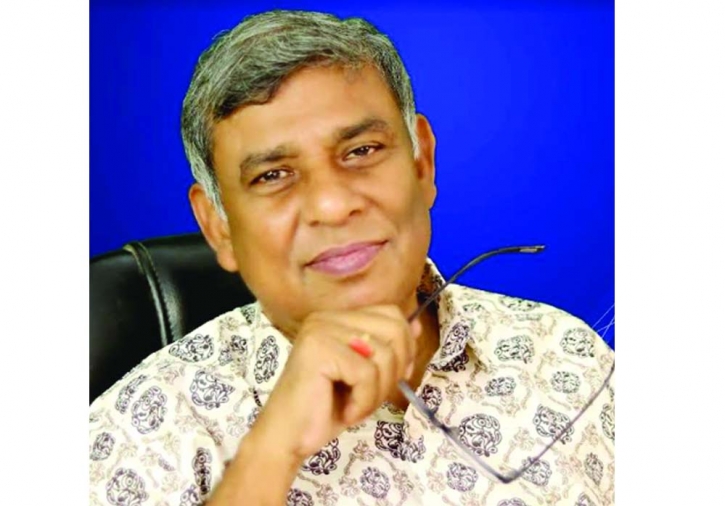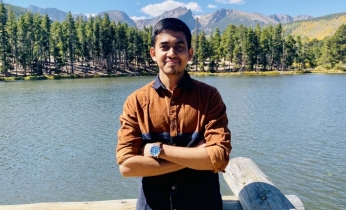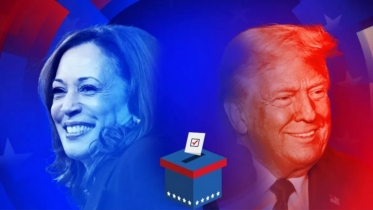
Current ruling party, Awami League, is celebrating its 75th anniversary today. On the afternoon of June 23, 1949, a new political party East Pakistan Awami Muslim League was formed in Rose Garden, KM Das Lane, Dhaka. Later the name of that party was changed to Bangladesh Awami League.
It was decided to form a new political party there in the afternoon of 23rd June in the presence of 250-300 people. According to the proposal of Maulana Abdul Hamid Khan Bhasani, the party was named 'East Pakistan Awami Muslim League'.
Along with this, the name of the organization in the whole of Pakistan was named 'Nikhil Pakistan Awami Muslim League', whose president was Hossain Shaheed Suhrawardy. The word Muslim was dropped from the name of the party after six years of its appearance, with the aim of establishing secularism and non-sectarianism in the party.
In 1966, the six-point demand for regional autonomy raised by the Awami League is considered to be the first step to achieve the independence of Bangladesh. After that, Awami League's role in the 1969 referendum made the party the single largest political party in the region and Sheikh Mujibur Rahman became the undisputed leader of the party. With the Agartala conspiracy case linked to this, Sheikh Mujib gained skyrocketing popularity and it is said that this popularity brought the Awami League a huge victory in the 1970 elections.
As a result, Awami League led the liberation war, which is the continuation of now independent Bangladesh.
After the formation of the new party, Maulana Bhasani was given the responsibility to form a new executive committee. He announced a committee in consultation with others. Maulana Bhasani became the president of that new committee. The vice presidents are Ataur Rahman Khan, Ali Amjad Khan, Ahmed Ali Khan, Shakhawat Hussain and Abdus Salam Khan. General Secretary is Shamsul Haque. The treasurer was Yar Mohammad Khan, whose first meeting was held in the Rose Garden owned by him. Sheikh Mujibur Rahman was then detained in jail but he was made joint general secretary.
This is how the first committee of 40 people was formed. But later many of them did not stay with Awami League anymore.
The next day, June 24, a public meeting was called at Armanitola Maidan. But the then Muslim League workers attacked that meeting.
Writer Mohiuddin Ahmad says, "There is a commentary in Ali Ahad's book that AK Fazlul Haque attended the Rose Garden meeting for a while. He was then the Advocate General of the Government of East Pakistan (currently Attorney General). But he left shortly after because of his government position.''Six years after its launch, the word Muslim was dropped from the party's name, in an effort to promote secularism and secularism in the party.
When Sheikh Mujibur Rahman and his family were killed in 1975, only Sheikh Hasina and her sister Sheikh Rehana survived because they were staying abroad. Later they got asylum in India. Sheikh Hasina returned home that day after spending six years in exile.
Even before that, in 1981, in the absence of Sheikh Hasina, he was unanimously elected as the president of Bangladesh Awami League.
The topic of how Sheikh Hasina became the leader of the Awami League comes up in the book 'Some Events Around Bangabandhu Sheikh Mujib and Bangladesh' written by her late husband MA Wazed Miar. The events of that time have come up in the writings of nuclear scientist MA Wazed Mia. Staying in India, during these two years - 1979 and 1980, some senior Awami League leaders went to Delhi at various times to inquire about them.
MA Wazed Mia wrote in his book, Awami League leader Abdur Razzak met them on his way to and from Kabul.
Awami League leader Zillur Rahman, Abdus Samad Azad, then Juba League leader Amir Hossain Amu, then one of the joint secretaries of Awami League Syeda Sajeda Chowdhury went to Delhi. One of the objectives of their visit was to convince Sheikh Hasina to take the leadership of Awami League. However, Sheikh Hasina was announced as the party president in her absence. Since then Sheikh Hasina is the undisputed president of the largest political party of Bangladesh, a forty-three years journey.
Since the establishment of Awami League, every achievement and achievement in this territory has been under the leadership of Awami League. Awami League is at the root of all the achievements of Bengali and all the development of Bangladesh, starting from protecting the dignity of mother tongue Bengal till today. Bangladesh Awami League is not only the oldest and largest political organization of this country, but also the mainstream of Bangladesh politics. The history of the rise of independent Bangladesh and the Awami League are intertwined.
Awami League has played an important role in language movement, anti-Ayub movement, six-point movement, mass movement, freedom war, anti-dictatorship movement etc. After independence in August 1975, after the assassination of Bangabandhu Sheikh Mujibur Rahman and his family, Awami League was in a crisis of existence. Awami League came back to power under the leadership of Sheikh Hasina in 1996 after 21 years of struggle for existence.
Awami League and Sheikh Hasina's contribution to the country's roads, school and college building problems, Padma Bridge, flyover, metro rail and many other infrastructure developments is undeniable.
Awami League has won the election for the fourth time in a row through the election on January 7, 2024. The transparency of the last three elections except the 2008 army-supervised election is questionable. The 2018 election, dubbed the 'night vote', saw over 80 per cent voter turnout. The last election in 2024 saw around 40 per cent voter turnout. At present, the responsibility of creating reluctance of people to vote mostly falls on Awami League. Not being able to control the increase in commodity prices, money laundering, unlimited corruption, violent behavior of student and youth organizations etc. is a significant failure of the Awami League regime. Despite some shortcomings Awami League is the symbol of political continuity and the only largest face of secularism in the country.
The writer is an assistant professor of English of Abdul Hye City College, Narail and staff correspondent of The South Asian Times .





































